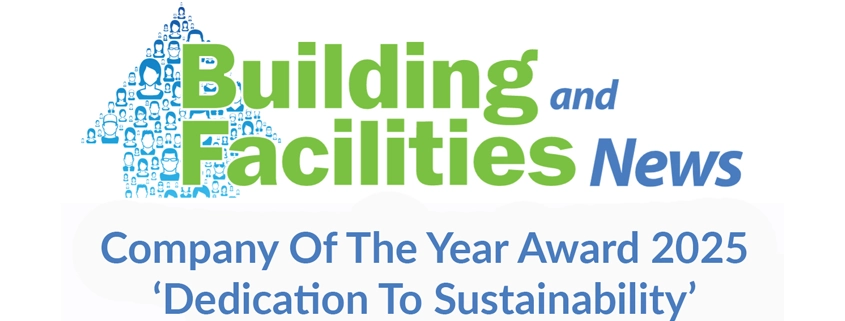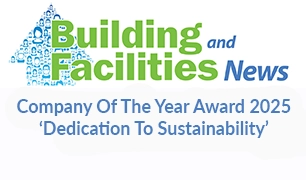Net Zero Compliance
Target setting and net zero compliance takes sustainability from a feel-good initiative to a legal necessity for UK commercial organisations. With an increasing focus on environmental and social responsibility, businesses face a complex web of regulations demanding transparency and action. Increasingly this activity will be expected to hinge on science-based targets (SBTs) if sustainability strategies are to have a real impact. This approach encourages positive capital investment in sustainable technology and systems for active local change, as opposed to carbon offsetting by investing in ‘sustainable projects’ in other countries. An activity that was seen in the past as an easy win for commercial organisations seeking to address public stance on the environment.
Target Setting
SBTs are an excellent way to define your organisation and to illustrate to customers commitment to stopping climate change. They aid your business by:
Supporting sector decarbonisation: SBTs can be tailored to your specific industry sector allowing your organisation to set targets which complement wider industry initiatives. This of course helps drive existing net zero and wider national sustainability strategies.
Demonstrating leadership for improved reputation: with SBT targets an organisation can demonstrate leadership in the environmental space for customers, employees, and key suppliers. These targets show commitment to following a best practice approach to reducing your emissions, even if unverified, which is easy for customers and stakeholders to understand.
A commercial organisation’s sustainability strategy will map corporate transition to meet and preferably exceed requirements for net zero by 2050 in the UK. A science-based approach defines targets that underpin that strategy.
These targets should first establish a baseline for greenhouse gas (GHG) emissions, a reduction goal and a target year all supported by a defined route to emissions reduction set in line with keeping global warming well below 2°C, with an overall goal of limiting warming to 1.5°C.
As of January 21st 2024, the Science-Based Targets Initiative (SBTi) updated its definition of small and medium-sized enterprises that qualify for the SME target validation route.
A company will be considered an SME if all the below points are met:
- Have <10,000 tCO2e across scope 1 and location-based scope 2 emissions.
- Do not own or control maritime transport vessels.
- Do not own or control power generation assets.
- Are not classified in the Financial Institution (FI) Sector or Oil & Gas (O&G) Sector.
- Are not a subsidiary of a parent company whose combined businesses fall into the standard validation route.
In addition to two of the below:
- Employ <250 employees.
- Turnover of <€40 million (£35 million).
- Total assets of <€20 million (£17 million).
- Are not in a mandatory Forest, Land and Agriculture (FLAG) sector.
This change is part of SBTi’s aim to promote sustainability and align with European sustainability reporting (Corporate Sustainability Reporting Directive), as well as encourage SMEs to be ambitious with their corporate sustainability goals.
If your business is not classed as an SME, setting a SBT is still a good way to get started, demonstrating to customers and employees that the business is serious about carbon reduction.
Businesses whose Scope 3 Emissions encompass more than 40% of their overall Carbon Footprint are required to set a Scope 3 goal within their targets, these organisations will likely be required to set a Scope 3 SBT (Scope 3 Emissions contribute to over 70% of carbon emissions for 70% of all businesses).
As Scope 3 incorporates an organisation’s value chain, it’s time to also start addressing upstream and downstream emissions, as well as communicating with suppliers about their emissions profiles.
Carbon emissions are divided into three categories – direct emissions (Scope 1), indirect emissions (Scope 2), and all other indirect emissions outside of an organisation’s control (Scope 3).
Scope 3 Emissions comprise the majority of an organisation’s carbon footprint – in many cases, encompassing more than 70% of an organisation’s total GHG emissions – and present one of the most significant opportunities to influence carbon reductions and drive forward new carbon-related business objectives.
While not currently mandatory to report in the UK, their inclusion is increasingly encouraged to set Scope 3 targets should their emissions account for more than 40% of the organisation’s overall carbon footprint and may become obligatory in the future. Therefore, understanding these emissions is crucial for responsible businesses.
- Key sources: Scope 3 emissions encompass diverse activities like purchased goods and services, employee commuting, and business travel. Measuring them requires data gathering from suppliers, travel patterns, and waste disposal partners.
- Available methodologies: The Greenhouse Gas Protocol provides standardised measurement methodologies, including life cycle assessments and input-output analysis.
- Benefits: Quantifying Scope 3 emissions enables informed decision-making, identifies reduction opportunities across the value chain, and demonstrates a commitment to comprehensive sustainability.
Environmental, Social, and Governance (ESG) factors are increasingly integrated into investment decisions and risk assessments. The purpose of an ESG Strategy is to demonstrate the environmental, social, and governance factors that your organisation believes to be intrinsically important to consider within your current and future business operations. Measuring and comparing your ESG performance against industry peers offers valuable insights.
- Popular frameworks for ESG benchmarking include the Global Reporting Initiative (GRI), Sustainability Accounting Standards Board (SASB), and the Task Force on Climate-Related Financial Disclosures (TCFD) provide widely recognized ESG reporting frameworks.
- Benefits: Benchmarking identifies strengths and weaknesses in your ESG performance, highlights potential areas for improvement, and showcases your commitment to transparency to stakeholders.
- An ESG strategy can also align your organisation with the requirements for ISO 14001and ISO 50001, providing an opportunity to gain external validation from an independent body for the organisation
With improved risk management processes in place, a strong ESG strategy can relieve the regulatory pressure on organisations, enabling organisations to plan for, and action, future legislative requirements.
Effective ESG strategies enable organisations to establish compliant policies and procedures that meet mandatory reporting and legislative requirements. This makes recording and submitting performance data for requirements (where applicable) such as annual reports, the Energy Savings Opportunity Scheme (ESOS) and Streamlined Energy and Carbon Reporting (SECR) easier to monitor and manage, and therefore counter unwelcome governmental actions, including fines or penalties for non-compliance, along with any potential reputational damage.
Sustainable Net Zero Commercial Products
Adveco can help you achieve your Net Zero target by the year 2050 making your business sustainable for the future. Environmental sustainability can be achieved by improving efficiency for a calculable reduction in energy consumption. Reduce emissions, or completely remove from estate buildings. And / or to adapt existing systems with low carbon or a hybrid system that economically bridges future sustainable technologies. Adopting a Net Zero water heating strategy is a relatively simple and often much lower-cost means of implementing early steps towards a more sustainable business model.

Legal Compliance

The Energy Savings Opportunity Scheme (ESOS) mandates large UK businesses to conduct energy audits every four years. It is estimated that around 10,000 organisations, covering up to 200,000 buildings, are expected to be included in ESOS. These audits identify cost-effective energy-saving measures, ensuring efficient energy use and contributing to national decarbonisation goals.
The scheme requires the recording and reporting of energy data for buildings, transport, and industrial processes over a 12-month period. Additionally, the scheme requires energy surveys accompanied by cost-effective recommendations to reduce energy demand and improve energy efficiency. All the evidence gathered must be signed off by an accredited ESOS Lead Assessor.
Organisations that fail to comply with ESOS are likely to face substantial financial penalties.
Who is affected?
ESOS applies to businesses exceeding specific thresholds in employee numbers, turnover, or balance sheet total. For the qualification date for the third compliance period of ESOS (31 December 2022) a large undertaking is any UK company that either employs 250 or more people, or has an annual turnover in excess of £44 million, and an annual balance sheet total in excess of £38 million.
Compliance steps: Appoint a qualified lead assessor, conduct an energy audit, develop and implement an energy-saving action plan, and report findings to the Environment Agency.
Benefits: ESOS compliance promotes energy efficiency, reduces costs, and helps businesses comply with broader environmental regulations.
The government now requires participants to comply with Phase 3 of ESOS. To ensure there is reasonable time for participants to meet the new requirements and for assessors to carry out assessments, ESOS participants be required to comply from 5 June 2024.
Under phase 3, organisations are required to include an energy intensity metric in ESOS reports, which will also provide more information on the next steps for implementing recommendations. These steps will set a target or action plan which they will be required to report against annually, and which will be shared with subsidiaries.
The Streamlined Energy and Carbon Reporting (SECR) is the UK Government’s energy and carbon reporting framework which came into force on 1st April 2019. Approximately 12,000 large UK registered quoted company or large unquoted company or Limited Liability Partnership (LLP) UK companies are required to report under the SECR framework, aimed at reducing the complexity of current energy and carbon reporting requirements.
The regulations mandate these large UK companies to disclose their energy consumption, greenhouse gas emissions, and energy efficiency measures in their annual reports.
- Who is affected? SECR applies to quoted companies, large unquoted companies, and limited liability partnerships meeting specific size criteria. All ‘large’ unquoted companies or Limited Liability Partnerships which meet at least two of the following criteria will need to report: turnover (£36M+) / balance sheet (£18M+) / employees (250+)
- Companies using 40,000 kWh or less of energy in the 12-month reporting period will be exempt, as will those unquoted companies where ‘it is not practical to obtain information’.
- There is no impact on public organisations, charities or voluntary bodies unless they operate as companies or LLPs and are above the relevant reporting thresholds.
Reporting requires the disclosure of all greenhouse gas emissions associated with energy use, categorised as Scope 1 & 2 emissions. This includes electricity, natural gas, and other fuels used at your sites and in your vehicles, and fugitive emissions from refrigerant leaks/maintenance.
GHG emissions must be normalised against an intensity metric, such as greenhouse gas (GHG) emissions per £M turnover, or per employee for example.
Annual energy consumption from building/activities for which the company is responsible, including all utilities (electricity, gas, fuels, renewables) and transport assets in the UK and UK overseas territories, expressed in consumption units (kWh for electricity & gas, litres for other liquid fuels).
SECR will also record measures taken to improve the energy efficiency of an organisation’s buildings and transport fleet during the reporting year in a narrative format.
SECR enhances transparency, informs stakeholders about your environmental impact, and motivates action towards achieving net-zero targets. Most organisations that have to report for SECR will likely also have to submit a notification for the ESOS. If an organisation does not have a GHG reporting/disclosure process in place, then it will need to complete annual assessments and disclose them in its annual reports. For those already reporting under Mandatory GHG Reporting (MGHG) legislation or are already voluntarily disclosing GHG emissions, they then will need to include energy use and energy efficiency measures as part of the disclosure.
Staying Ahead of the Curve With Adveco
Navigating legal compliance on sustainability can be complex, but it’s an essential responsibility for modern businesses The legal landscape of sustainability compliance is constantly evolving. By staying informed, UK commercial organisations can demonstrate their commitment to sustainability and contribute to a greener future. Remember, compliance is just the first step. Working with Adveco delivers an engineering-led opportunity to be more proactive, with ambitious sustainability efforts becoming a reality with greater ease than perhaps expected.
Adveco Live metering of existing buildings is not only an excellent way to audit demand for hot water but also a method for assessing energy efficiency and proposals to invest in active decarbonisation of hot water applications known to be a major driver of carbon emissions for many commercial activities. Metering provides a starting point for a strategy to improve the energy efficiency of business-critical water heating and begin the decarbonisation of the building. A strategic approach such as this allows plans to be created and developed based on real-world, accurate data gathering which highlights where key changes can be made to improve building operations and future operational procedures. Active, reportable change that can be applied to meet mandated compliance.
Recommendations for Adveco’s packaged, pre-sized offerings and bespoke applications will not only meet but typically exceed current regulatory requirements to ensure investment is future-proofed. This helps organisations create a competitive advantage, attract responsible investors, and build trust with stakeholders in an increasingly sustainability-conscious world.

Net Zero News
Read The Adveco July 2025 Newsletter
Building And Facilities News Bestows Its Company of The Year Award on Adveco For Advancing Building Sustainability In The UK
Sustainability And The UK’s Spending Review
Sustainability Targets & The Transition To Low Carbon Water Heating
Read The Adveco June 2025 Newsletter
Is the Race For Sustainability Superseding Safety?
Ask Adveco? Sustainability and Regulation Challenges For Water Heating
Adveco Wins Award For Innovation In Retrofit




























